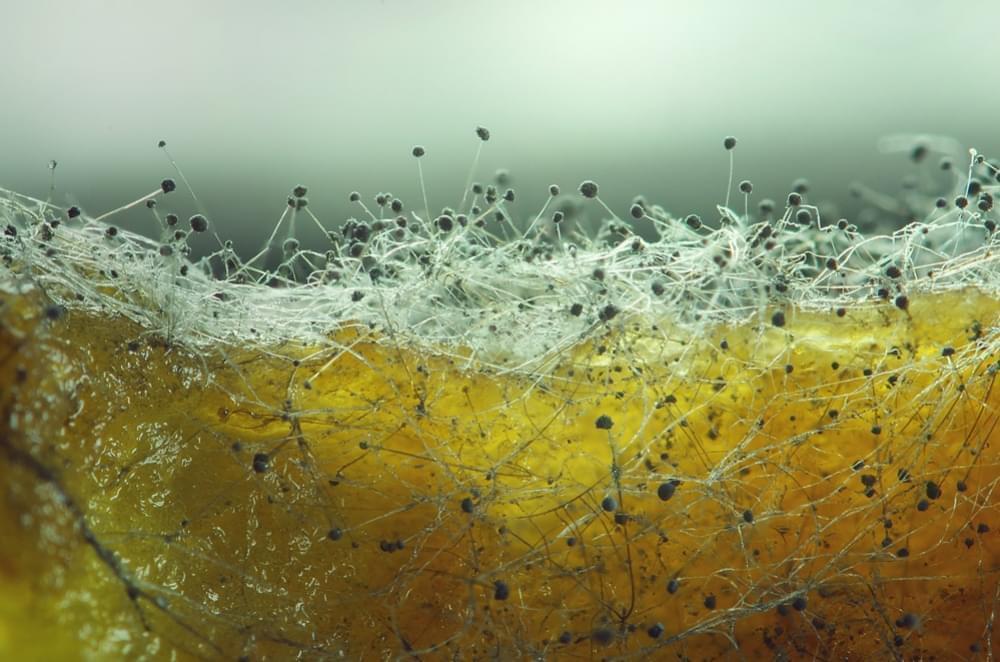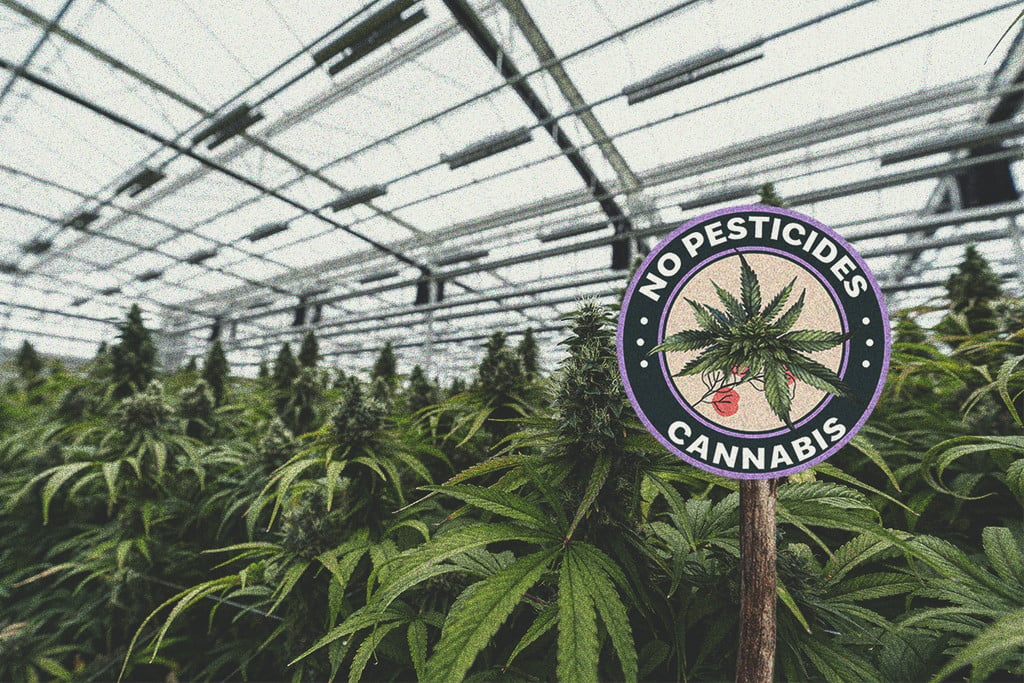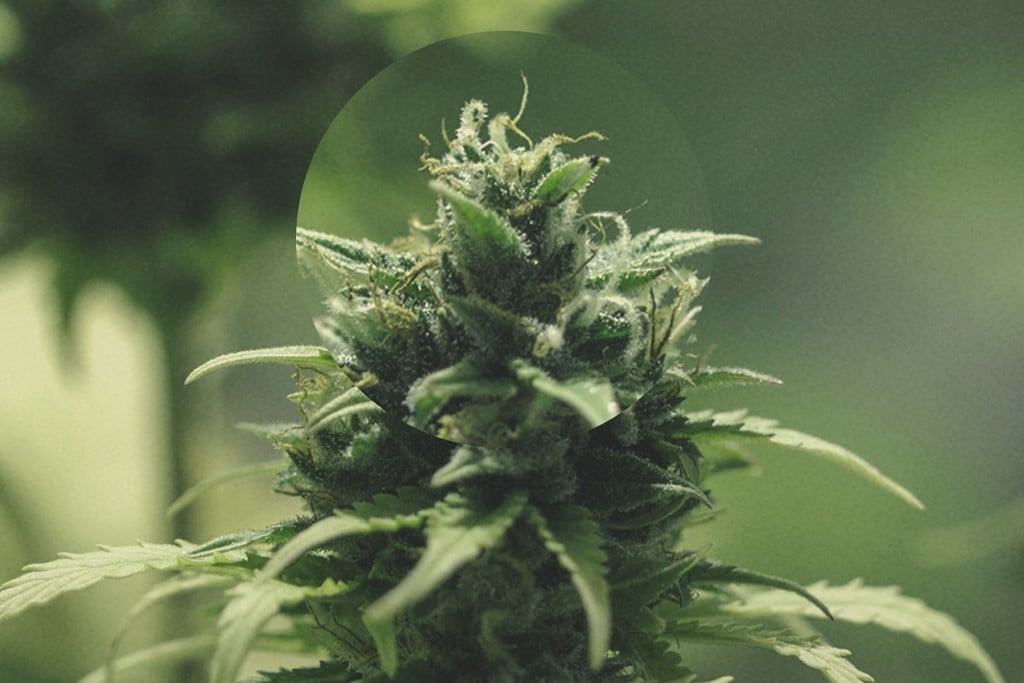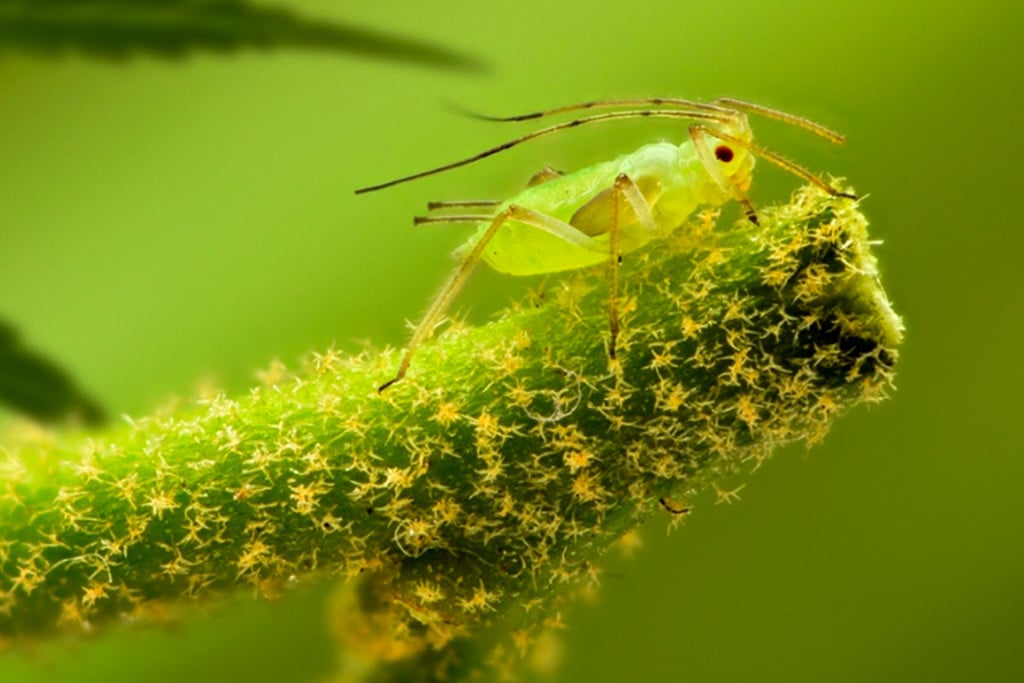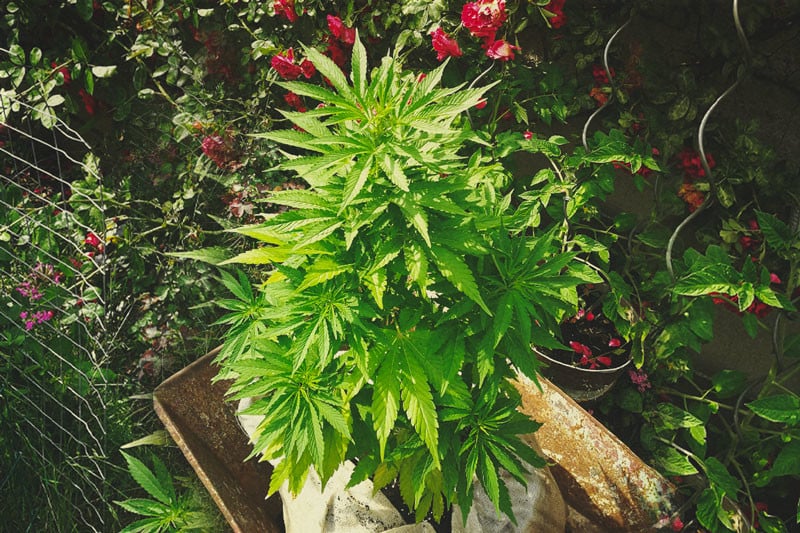.
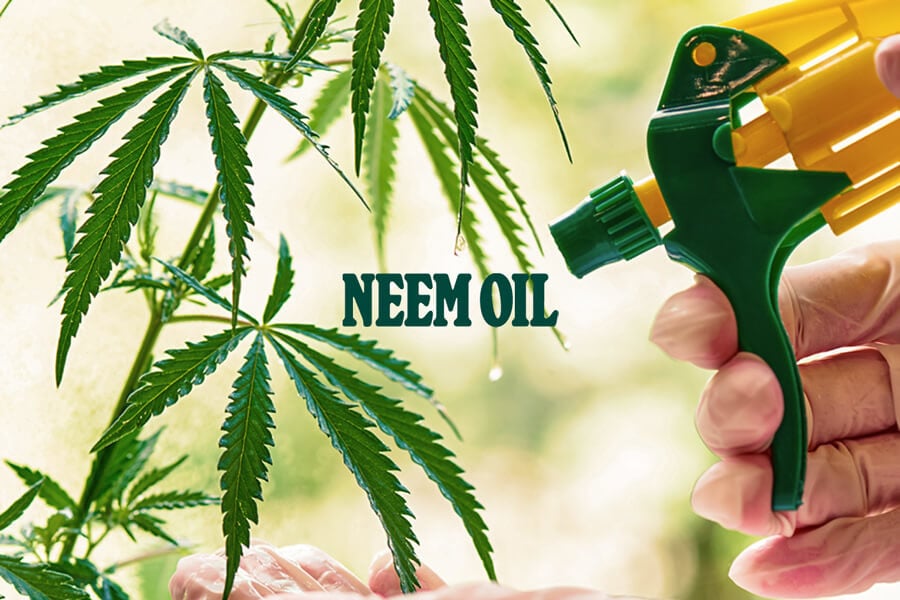
How to Use Neem Oil to Fight Cannabis Pests
Neem oil has a long historical use as a biopesticide within traditional farming systems of India. Today, many organic cannabis growers use the substance to tackle pest infestations and diseases without harming the wider environment. Discover how neem oil works to tackle infestations, why it won't harm your plants, and how to use it.
Contents:
Neem oil serves as the perfect alternative to dangerous chemical pesticides. It targets a long list of pest species and fungal pathogens while keeping beneficial life forms unharmed. Discover why neem oil has the potential to protect your cannabis crop, and exactly how to prepare and apply it.
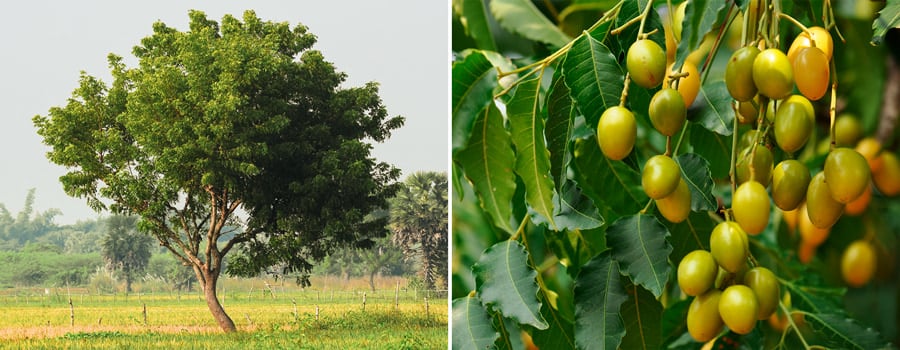
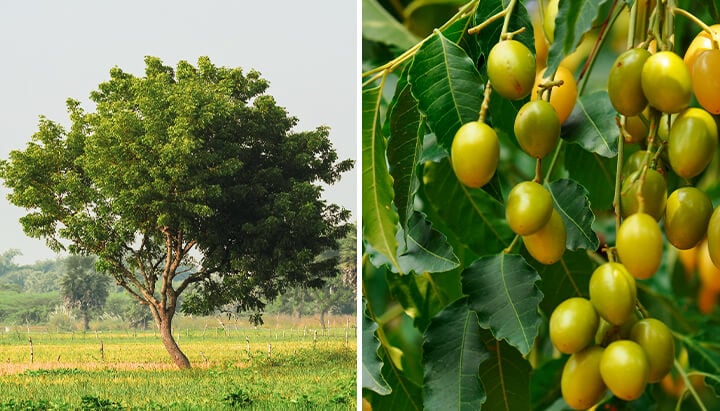
What Is Neem Oil?
Neem oil derives from the neem tree, known by the Latin binomial Azadirachta indica. As a naturally occurring pesticide, it remains one of the most popular pest management options among organic growers. The use of neem oil to protect plants dates back hundreds of years, and many contemporary growers use the substance, on both small and industrial scales. When applied as a foliar spray, the biopesticide boasts effectiveness against hundreds of different pests and pathogens, including bugs, fungi, and viruses. A key compound within neem oil, named azadirachtin, works as both an antifeedant and insect growth regulator by blocking the release of a hormone that enables insects to transition from the larval to the pupal stages.
How Is Neem Oil Made?
The process of extracting oil from the seeds of the neem tree involves several crucial steps. First, seeds are harvested from mature neem trees, broken open, and the kernels are separated. The kernels are then pressed using industrial processing equipment or with traditional wooden hand-presses known as ghanis. Neem seeds are absolutely packed with oil, and yields are often as high as 50% of the weight of the kernel. Bottled neem oil products also sometimes contain emulsifiers to enable the oil to mix properly with water before application.
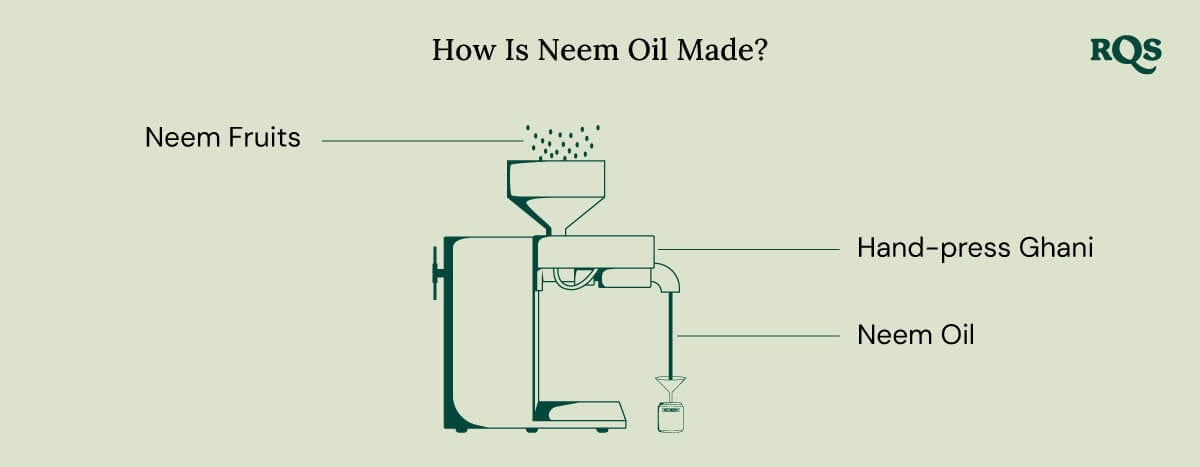
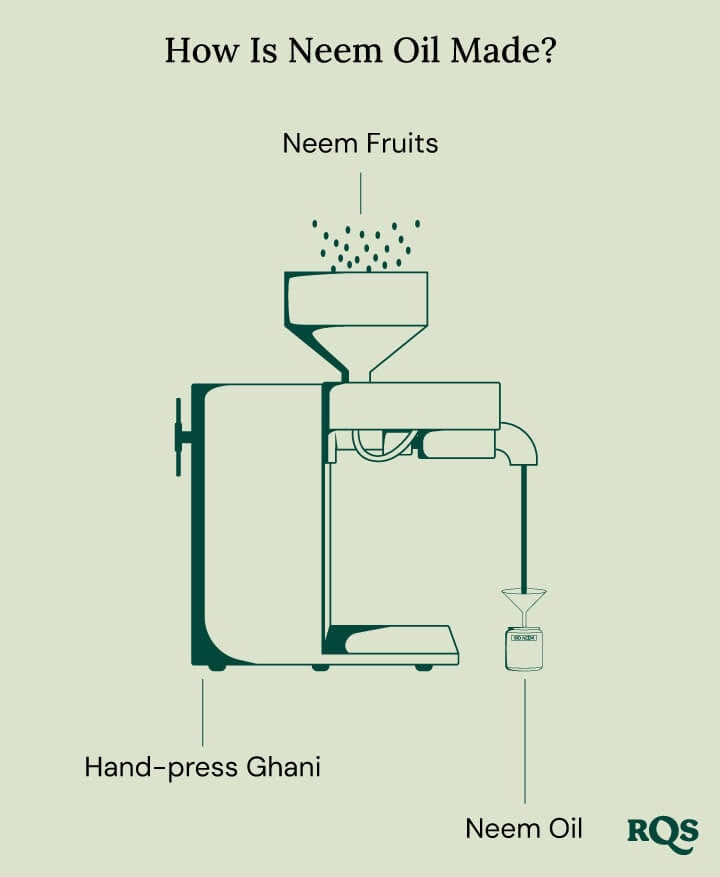
The Historical Use of Neem in Agriculture
Using neem oil to fight off plant pests and diseases isn’t a modern innovation. The use of neem as a biocontrol agent has its roots in traditional Indian farming practices. Here, farmers apply neem both as a pesticide and soil enhancer, utilising not just the oil from the seeds but also the leaves and bark to build soil fertility.
The Benefits of Using Neem for Organic Pest Control
Neem has a wide range of benefits in the garden and grow room. Unlike conventional chemical pesticides, research has shown that neem oil poses no danger to agricultural workers. On top of this, it has no ill effect on the wider environment, including wildlife. The active compound quickly breaks down and creates no toxic effects in birds, mammals, and plants. However, it can negatively impact aquatic organisms. It also poses no danger to bees and other pollinators, as insects must eat treated plants in order for neem oil to take effect as a pesticide.
Dive deeper into the benefits of neem oil as a biocontrol agent below.
-
Organic and Biodegradable
Neem oil can help to protect a wide variety of crops, including cannabis, without having a detrimental effect on garden ecosystems and the wider environment. As a biodegradable substance, neem oil swiftly breaks down without leaving harmful residues in soil and water. This makes neem oil a superior and eco-friendly choice for conscious growers who would rather forgo chemical agents that pollute the soil and harm beneficial organisms.
-
Broad-Spectrum Effectiveness Against a Range of Pests
When using neem oil for cannabis, the substance doesn’t target a specific set of pests or diseases. Rather, it works in a scattershot manner to kill pests and pathogens that actively attack and devour treated plant tissues. Overall, it has proven effective against approximately 600 plant-harming species. These include the usual suspects that cause both indoor and outdoor cannabis growers grief, such as spider mites, whiteflies, aphids, and caterpillars. This broad-spectrum effect makes neem oil a must-have biocontrol agent that all growers should have ready to deploy at a moment’s notice.
-
Help to Manage Fungal Diseases
Most cannabis growers spend time concerning themselves with the most common pest insects. However, pathogenic microbes are also a serious threat to plant health and yields. Root rot, bud rot, and stem rot are vicious plant conditions that often kill off entire plants and ruin harvests. Powdery mildew, a parasitic fungal infection, also wreaks havoc by robbing plant resources and blocking out the sunlight that leaves need to conduct photosynthesis. Thankfully, neem oil also makes easy work of many fungal pathogens that target cannabis plants. It helps to fight off powdery mildew, rust, and black spot by creating a protective barrier on leaf surfaces, and by directly hindering the growth of pesky microbes.
How to Apply Neem Oil to Weed Plants
Neem oil works as an effective and eco-friendly biocontrol, but how should you go about applying it to your weed plants? Growers first need to dilute neem oil before they start spraying it all over their plants. There are also some best practice guidelines to keep in mind to make sure your applications are effective and don’t leave any wiggle room for pests to still gain a foothold. Read on to discover how to use neem oil for cannabis in the most efficacious way possible.
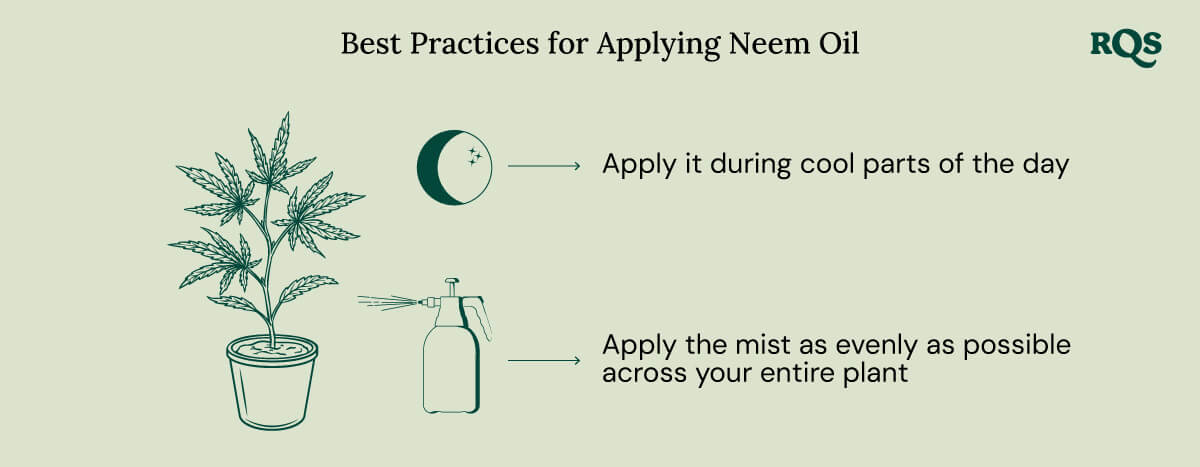
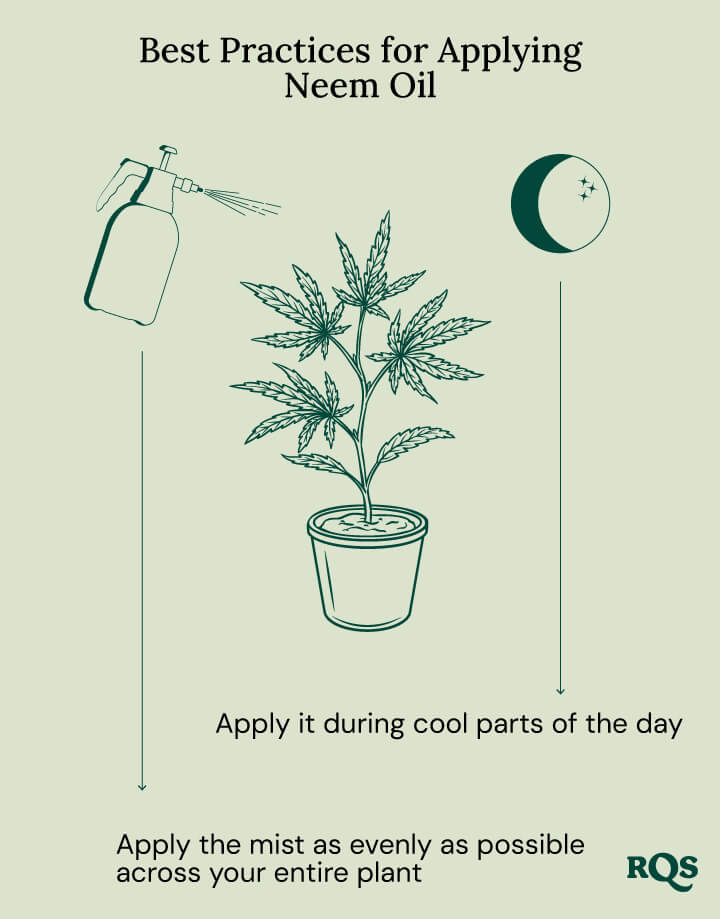
Diluting Neem Oil
Before you start applying neem oil to weed plants, you need to dilute it to reduce the potency. Applying highly concentrated neem can harm plants by causing them to burn in sunny weather. After purchasing a bottle of neem oil, you’ll need to store it in a cool and dark place. However, just before use, allow it to warm up to room temperature (around 25°C) so it becomes runnier and easier to mix. Next, grab yourself a spray bottle. Mix roughly 1 part neem oil with 25 parts lukewarm water. Ensure your water isn’t too warm, as this can denature the neem oil and reduce its efficacy. Replace the cap on your spray bottle and shake it thoroughly to allow the neem to dissolve fully and evenly.
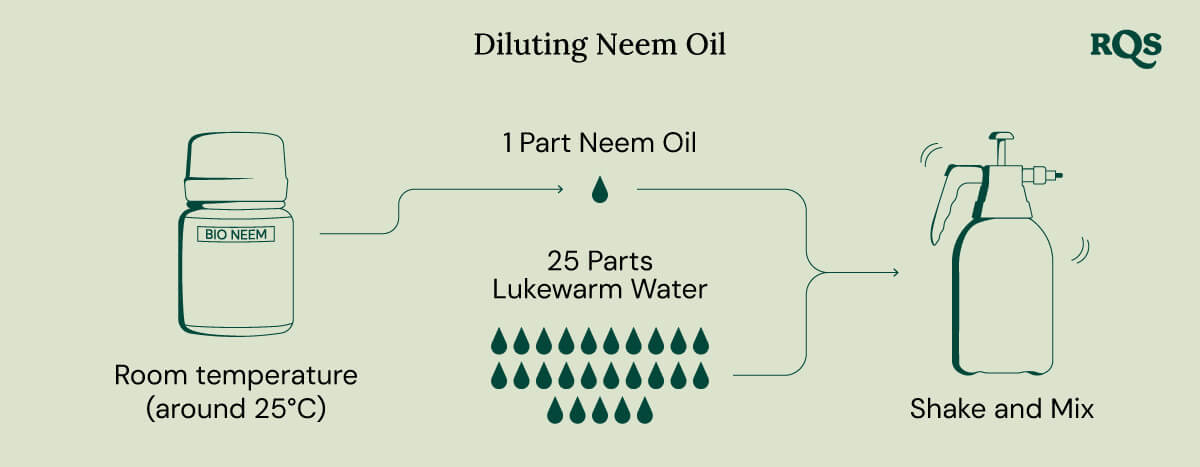
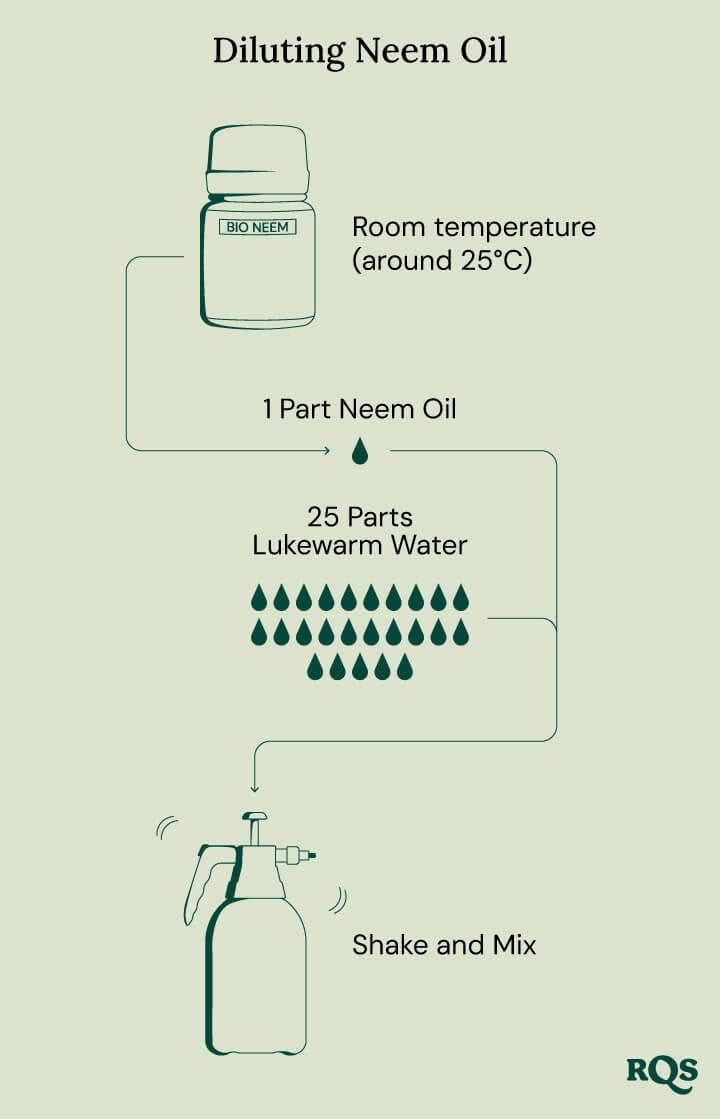
Best Practices for Applying Neem Oil
Now that you have your neem oil solution, you need to learn how to apply it properly to maximise its effectiveness at taking down pest insects. First things first—make sure to apply it during the cool parts of the day, either before sunrise or in the late afternoon. Applying neem oil during the warmest hours will increase the risk of leaf burn. Next, apply the mist as evenly as possible across your entire plant. Make sure to cover the stems, the upper and lower surfaces of the leaves, and the petioles. This widespread coverage will ensure that any insect that decides to take a bite out of your plant will be dealt with.
Should You Apply Neem During the Flowering Phase?
Pest insects don’t stop feeding on cannabis plants just because they start to bloom. But can you apply neem oil to cannabis plants during the flowering stage? You can, but there are a couple of things to consider.
When applied to mature flowers, neem can alter their taste in several ways. The oil may disrupt resin production, which serves as a source of cannabinoids and aromatic terpenes. Second, when applied shortly before harvest, neem oil residue can leave a bitter and harsh taste. With this in mind, you can still use the biocontrol to battle pests during bloom. Just make sure to cease application at least three weeks before harvest to avoid undesirable flavors when it comes to smoking your bounty.
Addressing Concerns About Neem Oil as an Organic Pesticide
While neem boasts a superior safety profile compared to conventional chemical pesticides, many organic growers are still concerned about its effect on their garden ecosystem. Conscious growers spend lots of time tending to the beneficial microbial and insect life in their growing space and don’t want to risk disrupting the balance. So, what are the primary concerns when it comes to spraying neem oil on weed plants?
Neem Oil: A Sustainable Choice for Organic Pest Control
Neem oil has become an indispensable tool in the arsenal of many cannabis cultivators. It works as an effective broad-spectrum biocontrol agent against a wide range of pests and pathogens. All the while, it remains largely harmless to beneficial insects, worms, and the wider environment. Now you’re aware of how to dilute neem oil and exactly how to apply it to cannabis plants for the best results!


























